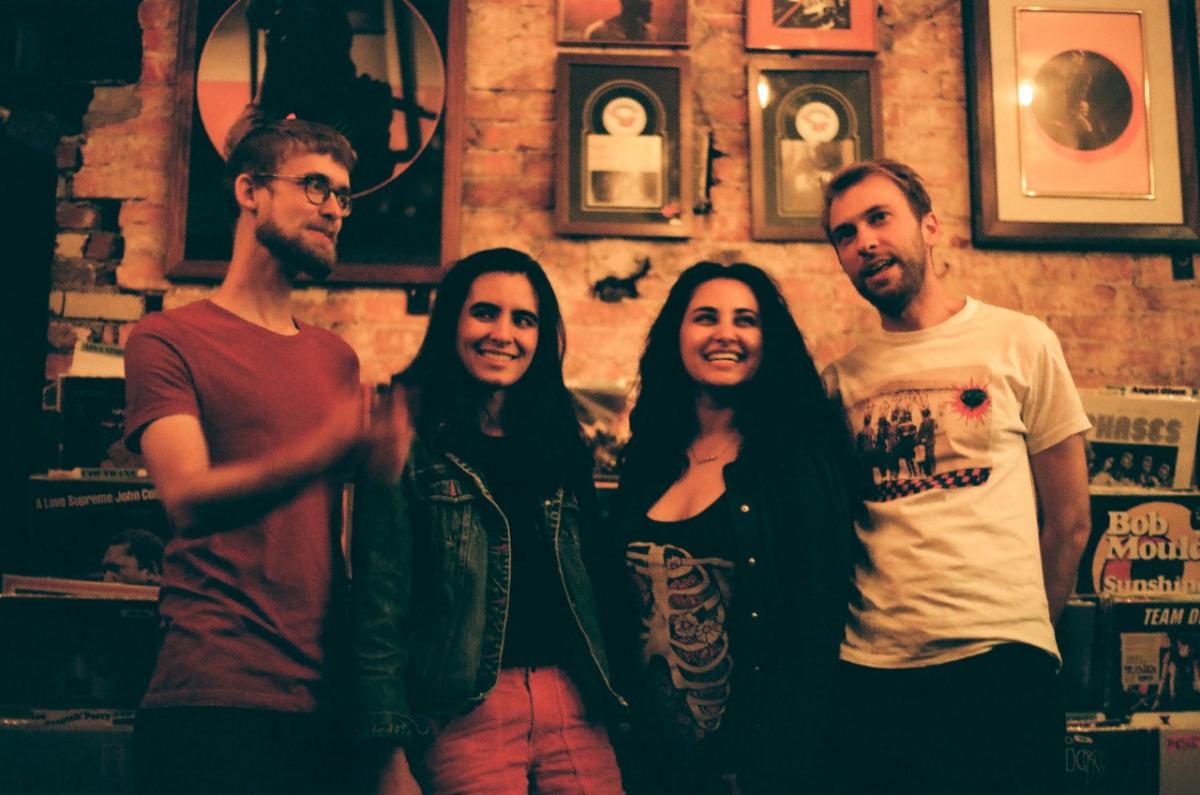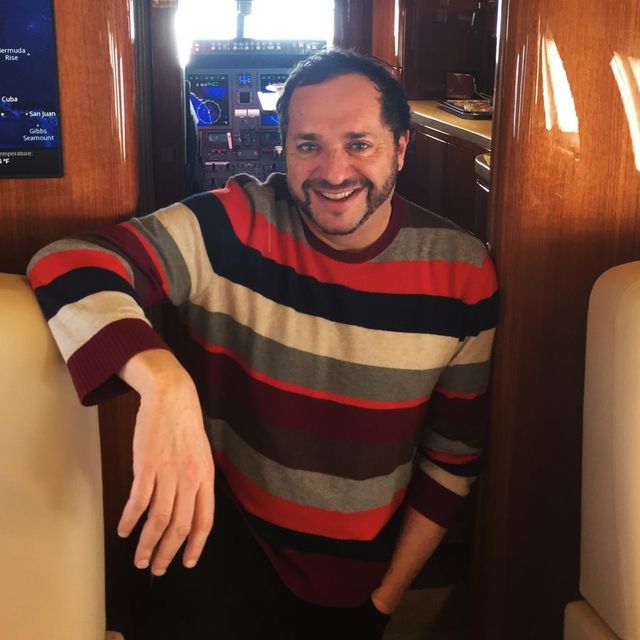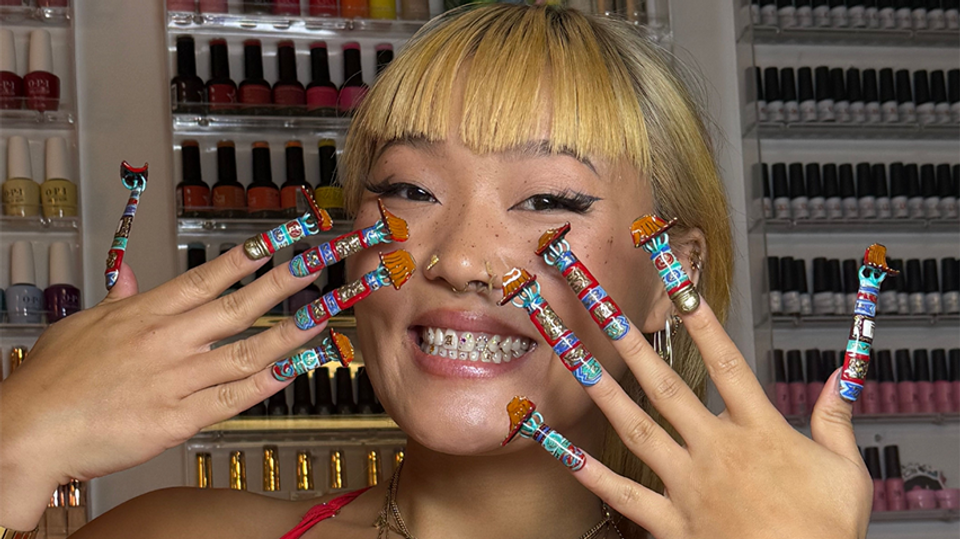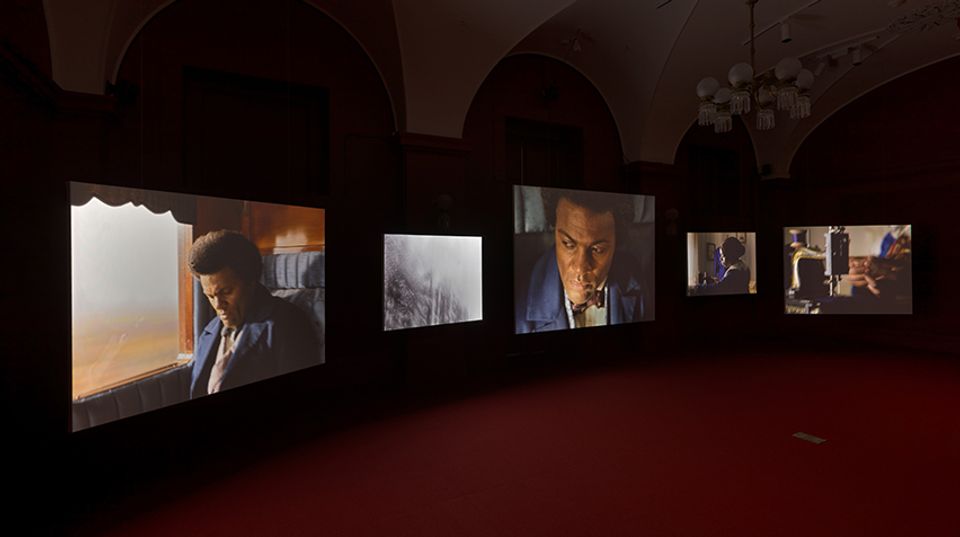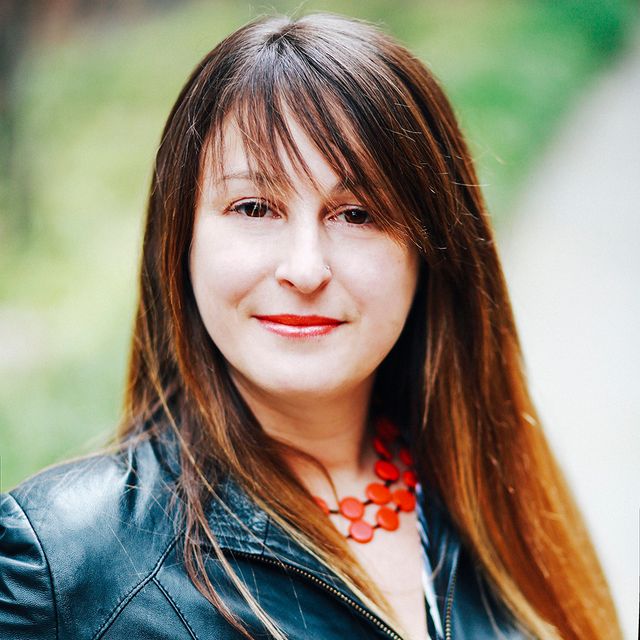From 2011 to 2020, SAAM hosted Luce Unplugged, a free, monthly concert series that celebrated the work of local musicians in its Luce Foundation Center. Since in-person events have been restricted during the pandemic, we teamed up with a local music podcast, Hometown Sounds, to continue to bring you music and conversations from your favorite DC artists. In our October episode, Rosie Cima of Rosie Cima and What She Dreamed discusses her welcome to DC’s music community and her approach to keeping it real in front of an audience. To hear the full interview, visit hometownsoundsdc.com.
Hometown Sounds: Did you know anything about DC music before you moved here?
Rosie Cima: Next to nothing. I thought that it would be really hard to get [my music] off the ground, but my second week in town, I was walking from my strange Airbnb to my cat sitting gig, carrying my guitar. Somebody was walking his dog in the other direction, and he pointed at me and said, "are you a musician?" I was like, weird, how does he know? Then I remembered my guitar. He invited me to a show at his house that weekend, and then he set up my first show at the Mellow Mushroom in Adams Morgan. So, it ended up being easier than I thought.
Your album, Realm of the Warring Gods, was released earlier this year by the nonprofit record label, This Could Go Boom! What has it been like to work with This Could Go Boom!? How did you connect with them?
I met [the people that founded This Could Go Boom!] at either 7DrumCity or through Project Hera. They were doing a Kickstarter campaign to get started. I saw them at events and met some of them individually when they were playing their own music.
Last summer, when we had all of the mixes from the album in hand, I wanted to try shopping it around to labels. They had only released one album at that point, but they had a contact form on their website. I wrote a very personal email that said I loved them, and I thought they were making DC music so much better, and I would love to be a part of what they were doing. They liked it and wanted to work with us, and it has been a really good experience.
Even before the album was out, one of the first shows that my band played was put together by This Could Go Boom! We played with The OSYX, Born Dad, and Lightmare at the Dew Drop Inn. We opened, and then saw the best show that we had seen in DC so far. Erin and Selena of The OSYX played dueling banjo guitar solos, leaning on each other's backs. I was like, where am I? This is incredible.
How did you meet the members of your band?
Somebody recommended that I look into 7DrumCity. It's a drum school. I wanted to get better at rhythm and playing drums had always looked really, really, really fun... [and] it is. I took drum lessons from Isabelle De Leon, who is incredible and in a billion bands. When she heard that I had just recorded an EP and I was looking to meet other musicians to play with, she said, you should do Flashband. Flashband is like speed-dating for musicians. Every month, 50 musicians get together and shuffle around jamming. At the end of the day, you form bands. At the end of the month, you play a big showcase together.
I met everybody who's in my band now at that meet and greet. I met my drummer, and I was like, she's the best, I want to work with her. We didn't end up in a Flashband together, but I got her number and I followed up with her. Both my bassist and my guitarist were in my Flashband. I thought, these guys are really, really, really nice, and I think that we play well together. I very shyly reached out and asked if this band was something that they'd be interested in. I love them. It's great. I'm very, very, very, very lucky.
You volunteered with Girls Rock DC!, an organization that centers girls, non-binary, and gender expansive youth as they grow into musicians. What stands out from that experience?
The song that my kids wrote was incredible. I had nothing to do with it. When I started, I didn't really understand how much I was supposed to be involved. Then I slowly realized, this is their song, they can do it and they will do it. They're going to work out how to relate to each other. They were middle schoolers and maybe a few fifth graders. They wrote a song about COVID from a kid's perspective.
It was really interesting because they wanted to make a pop song about the coronavirus. One kid said, I'm not okay with that, somebody very close to me died this year and I can't make a happy song about this. Then everybody else was like, yeah, we don't need to make a happy song. We can make a sad song, because it was not a good thing that happened here.
It was humbling to have a window into what being a child during the pandemic was like. The chorus went, This is COVID-19. You have to stay at home/ be sure that you quarantine inside your little dome/ Can't go outside for your whole life. Can't run around and play/ Inside your little home is where you're going to stay.
You use a vocal style in Stuck and in some of your other songs that sounds like a snarl. What kind of emotion is driving this? Can you tell us more about how you think about your stage presence?
When I started out as musician, I wasn't going to worry about showmanship. I thought that the only way to be a showman was to create a persona, to put on a mask and then take it off when I got off stage. I decided, no mask. It's just going to be real. it's just going to be me up there. I realized after years of performing that when I wasn't paying attention to opening up, I was closing off. I would get a really sore shoulder from crunching up on stage. I'd hear my own banter between songs. I'd go from big, loud, snarly, emotive singing to a completely flat effect. I'd be cracking jokes or talking about heartbreak, but it was like all the air had been sucked out of my voice. I realized I needed to figure out how to stay open while I'm up there.
I have a meditation practice, and part of what I do when I meditate is a body scan. You're supposed to name things, but not own them. Instead of thinking, my hand hurts, or my chest is tight, you're supposed to think the hand is in pain, the chest is tight. That was something that I was working with. What would it be like to do that on stage?
I try to stay grounded, and present, and feel myself, and not just present the person I'm used to presenting. That's a big part of what I'm trying to do with art. An audience is giving me the gift of witness. The way to meet that gift, and to honor it, is to be as honest as I can be up there.














